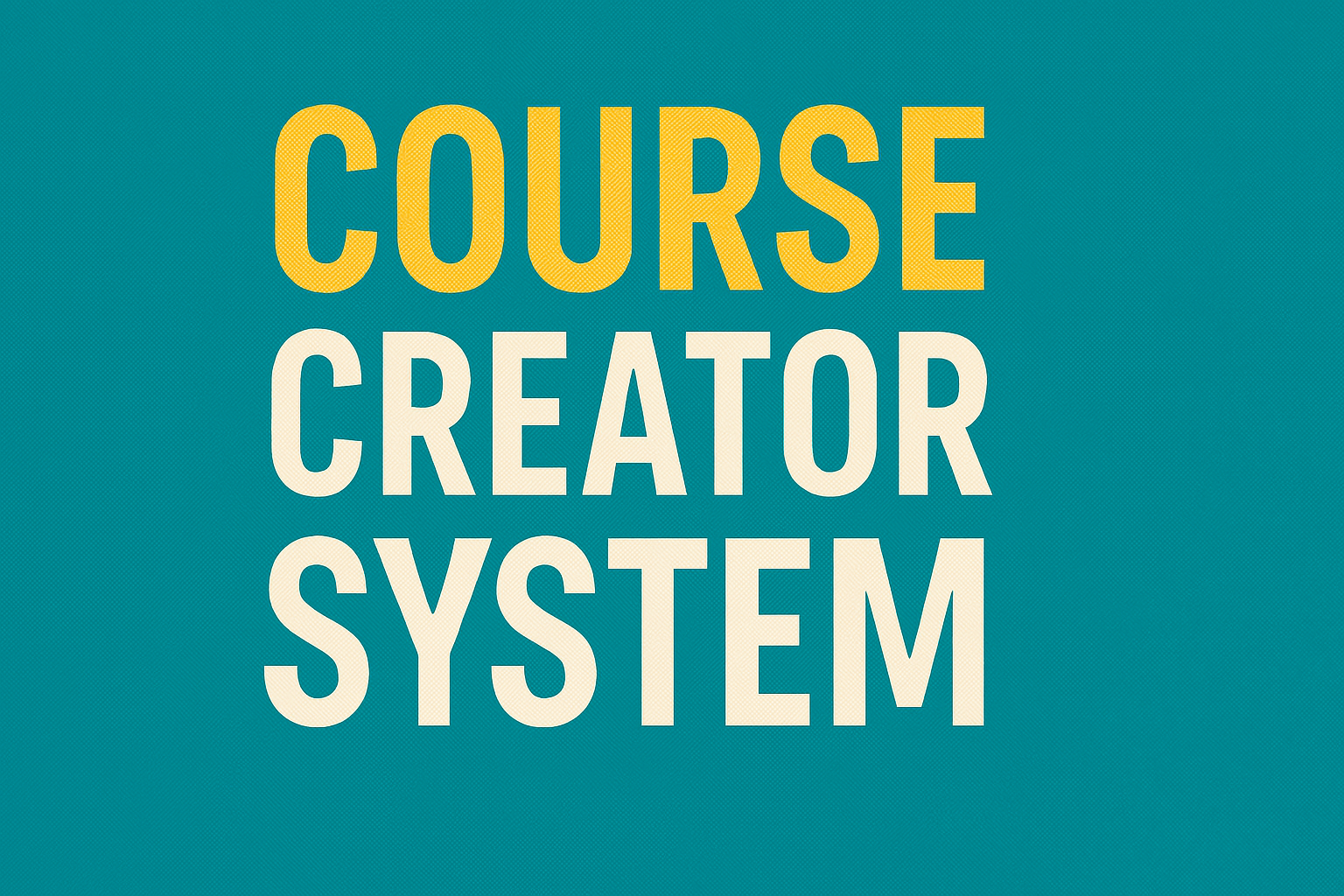Online Courses are an Impactful Way to Share Your Knowledge
In today's digital age, you have unprecedented opportunities to share your expertise with a global audience. Online courses offer a powerful platform to package your knowledge and skills into an impactful learning experience. By creating a well-structured course, you can reach eager students around the world, establish yourself as an authority in your field, and even generate a new income stream. Whether you're an industry veteran, academic expert, or passionate hobbyist, developing an online course allows you to scale your impact far beyond one-on-one interactions. This article will explore why online courses are an ideal medium for knowledge sharing and provide actionable steps to help you get started.
Online Courses Allow You to Share Your
Expertise and Passion
Showcase Your Knowledge
Online courses provide an excellent platform to demonstrate your expertise in a particular field. By creating comprehensive, well-structured content, you can establish yourself as an authority on your chosen subject. This not only helps you share your knowledge but also builds credibility and trust with your audience.
Connect with a Global Audience
One of the most significant advantages of online courses is their ability to reach learners worldwide. Your expertise is no longer limited by geographical boundaries. Whether you're teaching coding, cooking, or creative writing, you can connect with students from diverse backgrounds and cultures, enriching both their learning experience and your own perspective.
Create Lasting Impact
By sharing your knowledge through online courses, you have the potential to make a lasting impact on people's lives. Your expertise could help someone advance their career, develop a new skill, or even spark a lifelong passion. This opportunity to positively influence others can be incredibly rewarding and motivating for course creators.
Monetize Your Skills
Online courses offer a unique opportunity to turn your passion and expertise into a sustainable income stream. As you build your reputation and grow your student base, you can create multiple courses, offer premium content, or even develop a subscription model. This allows you to share your knowledge while also building a thriving online business.
Choosing the Right Online Platform for
Your Course
Selecting the ideal platform to host your online course is crucial for success. With numerous options available, it's essential to consider several factors before making a decision.
Features and Functionality
When evaluating platforms, assess their core features. Look for intuitive course creation tools, robust video hosting capabilities, and interactive elements like quizzes and discussions. Ensure the platform supports your desired content format, whether it's video lectures, text-based lessons, or a combination of both.
Pricing and Revenue Sharing
Compare pricing models across different platforms. Some charge a flat monthly fee, while others take a percentage of your course sales. Consider your budget and projected earnings to determine which model aligns best with your goals. Don't forget to factor in transaction fees and payout schedules.
Marketing and Discovery
Choose a platform that helps your course stand out. Look for built-in marketing tools, SEO optimization features, and a marketplace where potential students can easily find your offering. Some platforms have large existing user bases, which can significantly boost your course's visibility.
User Experience and Support
Prioritize platforms that offer a seamless experience for both you and your students. Test the course creation process and student interface. Additionally, ensure the platform provides reliable customer support, as technical issues can impact your course's success and student satisfaction.
By carefully weighing these factors, you'll be better equipped to select a platform that aligns with your teaching style and course objectives.
Creating Valuable Course Content That
Resonates with Students
Identify Your Target Audience
Before diving into content creation, it's crucial to understand who your students are. Research their demographics, interests, and learning goals. This knowledge will help you tailor your course to meet their specific needs and expectations.
Develop a Clear Course Structure
Organize your content into logical modules or sections. Start with foundational concepts and gradually build upon them. Create a clear roadmap that guides students through the learning process, ensuring each lesson connects seamlessly to the next.
Incorporate Diverse Learning Materials
Cater to different learning styles by including a variety of content formats:
- Video lectures for visual learners
- Written materials for those who prefer reading
- Interactive quizzes to reinforce key concepts
- Practical exercises for hands-on learners
This multi-faceted approach helps engage students and improves information retention.
Focus on Practical Application
Students value courses that offer real-world benefits. Incorporate case studies, examples, and exercises that demonstrate how to apply the knowledge in practical situations. This approach not only makes the content more engaging but also increases its perceived value.
Remember, the key to creating resonant course content lies in understanding your audience, structuring your material effectively, and providing diverse, applicable learning experiences.
Promoting Your Course to Reach the
Right Audience
Leverage Social Media Platforms
Social media is a powerful tool for course promotion. Utilize platforms like LinkedIn, Twitter, and Facebook to share snippets of your course content, behind-the-scenes looks, and student testimonials. Create engaging posts that highlight the unique value proposition of your course. Remember to use relevant hashtags to increase visibility and reach potential students who are actively searching for educational content in your niche.
Collaborate with Influencers and Industry Experts
Partnering with influencers or respected professionals in your field can significantly boost your course's credibility and reach. Seek out individuals whose audience aligns with your target market. Consider offering them a preview of your course in exchange for an honest review or testimonial. Their endorsement can help you tap into new networks and attract students who trust their recommendations.
Implement Email Marketing Strategies
Build an email list of interested prospects and use it to nurture leads. Create a series of informative emails that provide value while showcasing your expertise. Include teasers of course content, special offers, and limited-time promotions to encourage sign-ups. Personalize your messages to address the specific pain points and aspirations of your target audience, demonstrating how your course can help them achieve their goals.
Continuously Improving Your Course
Based on Student Feedback
Gathering Valuable Insights
Collecting and analyzing student feedback is crucial for the ongoing success of your online course. Regularly solicit input through surveys, discussion forums, and one-on-one conversations. Pay attention to both positive comments and constructive criticism, as they provide valuable insights into what's working well and areas that need improvement.
Implementing Strategic Changes
Use the feedback you receive to make informed decisions about course updates. Consider revising content that students find confusing, adding more examples to clarify complex concepts, or adjusting the pacing of lessons. Don't be afraid to experiment with new teaching methods or interactive elements based on student suggestions.
Fostering a Culture of Continuous Improvement
Demonstrate to your students that their opinions matter by acknowledging their feedback and explaining the changes you've made in response. This transparency builds trust and encourages ongoing participation in the feedback process. Remember, a course that evolves based on learner needs is more likely to remain relevant and effective over time.
By consistently refining your course based on student input, you'll create a dynamic learning experience that adapts to the changing needs of your audience. This iterative approach not only enhances the value of your course but also solidifies your reputation as an educator committed to student success.
Conclusion
As you consider ways to share your expertise, online courses stand out as a powerful and impactful option. By creating engaging digital learning experiences, you can reach a global audience eager to benefit from your knowledge. The flexibility and scalability of online courses allow you to educate thousands while maintaining a personal connection with students. Though developing quality content requires an investment of time and effort, the potential rewards - both financial and in terms of impact - make it a worthwhile endeavor. As you embark on your journey as an online educator, remember that your unique insights have the power to transform lives and shape the future of your field.
Sign Up for Think It - Plan It - Do It Newsletter and Get the
The Blogging Guide to Six-Figure Retirement for Free

